



April/May 2006
Biochemistry recruits new chair
High marks in USMLE testing
A strategic appointment
Postdoc destination
Transitions
Celebrating women physicians
You probably have heard me speak about enhancing our “culture of compliance” at various meetings. It is one of our school’s major goals and is widely supported by SOM administration, chairs, and faculty. But what does “a culture of compliance” really mean?
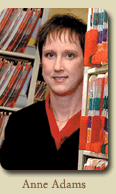
“It simply is a culture of doing the right thing,” says Anne Adams, Chief Compliance Officer for Emory Healthcare and Emory Medical Care Foundation (EMCF). “Your own integrity and values need to lead the way when making decisions.”
And part of “doing the right thing” is supporting and complying with the University’s health- care compliance program. We must be consistent when making these decisions so that we maintain our international reputation of excellence and continue to improve patient outcomes and enhance customer service and loyalty. It takes only a few noncompliant actions to prevent us from carrying out the SOM’s mission.
A compliance program should be a value-based system of ethics, professional integrity, accountability, and conduct rather
 than a system of rules enforced by federal and state agencies—think
documentation, coding, right to privacy, and billing regulations. To guide
us in enhancing our value-based system, the EMCF has created a board-level
compliance committee that “will foster and enhance an ethical culture
within our organization and promote compliance as an integral part of our
daily practice,” says its chair, Dr. Arthur Kellermann, Chair, Department
of Emergency Medicine.
than a system of rules enforced by federal and state agencies—think
documentation, coding, right to privacy, and billing regulations. To guide
us in enhancing our value-based system, the EMCF has created a board-level
compliance committee that “will foster and enhance an ethical culture
within our organization and promote compliance as an integral part of our
daily practice,” says its chair, Dr. Arthur Kellermann, Chair, Department
of Emergency Medicine.Dr. Claudia Adkison, Executive Associate Dean for Administration and Faculty Affairs, is leading the SOM’s initiatives to enhance our culture of compliance system-wide. “Compliance is everyone’s responsibility,” she says. “We are fortunate to have a faculty with high standards and a strong sense of integrity. I appreciate the commitment of Dr. Kellermann and his committee to the EMCF Compliance Program.”
Learn how the SOM’s research programs are working on compliance issues in the next issue of The Dean’s Letter.
TOP
Biochemistry recruits new chair
Please join me in welcoming Dr. Richard
 Cummings as Chair and William Patterson Timmie Professor in the
Department of Biochemistry, effective June 1. “It is a privilege to
join such an outstanding group of faculty, fellows, students, and staff,”
says Dr. Cummings. “I look forward to working in the coming years
to help the department grow and continue to be recognized for its outstanding
research and teaching. There are many exciting challenges ahead, and I kindly
ask for your cooperation and patience as we make plans together.”
Cummings as Chair and William Patterson Timmie Professor in the
Department of Biochemistry, effective June 1. “It is a privilege to
join such an outstanding group of faculty, fellows, students, and staff,”
says Dr. Cummings. “I look forward to working in the coming years
to help the department grow and continue to be recognized for its outstanding
research and teaching. There are many exciting challenges ahead, and I kindly
ask for your cooperation and patience as we make plans together.”Dr. Cummings currently serves as Ed Miller Endowed Professor, George Lynn Cross Research Professor, and Director of the Oklahoma Center for Medical Glycobiology, Department of Biochemistry and Molecular Biology, at the University of Oklahoma Health Sciences Center. His research encompasses glycomics and the roles of glycoconjugates and their receptors in cell adhesion and signaling in human inflammation,
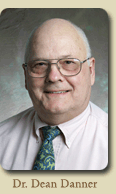 tumor metastasis, autoimmune diseases, and innate and acquired immunity,
including studies in parasitic diseases. His expertise is world renowned
in an area of research that is new to Emory.
tumor metastasis, autoimmune diseases, and innate and acquired immunity,
including studies in parasitic diseases. His expertise is world renowned
in an area of research that is new to Emory.Dr. Cummings and I both want to express our deepest thanks to Dr. Dean Danner for his exemplary leadership for the past five years as Interim Chair of Biochemistry. He will continue in this role until Dr. Cummings is fully on board. Dr. Danner also serves as Vice Chair, Department of Human Genetics, and is a tremendous asset to both departments.
TOP
High marks in USMLE testing
As we well know, Emory medical students are some of the best trained in the country. One example of their high caliber is the SOM’s annual pass rate for first-time takers of Step I of the U.S. Medical Licensing Examination (USMLE), which was 98% last year. (I also have to brag on the Class of 2009, whose average undergraduate GPA is 3.64 and total MCAT average is 33.3, which are exceptional.) The SOM requires that students pass the Step I exam following their second year of. All graduating students are required to pass the Step 2CK (Clinical Knowledge Exam) during their senior year. Graduating seniors also must take the 2CS (Clinical Skills Exam) before they can graduate.
How does all of this work? The National Board of Medical Examiners (NBME) oversees each step of the licensing process and relies on the dedicated, behind-the-scenes work of SOM faculty and staff to continue to make this process successful at Emory and nationwide. Dr. William McDonald (Psychiatry and Behavioral Sciences) is a test committee member who develops and reviews the test items from which the USMLE is composed. Drs. McDonald and Erica Brownfield (Medicine) are grading guideline task force members who participate in an NBME study that develops grading guidelines for the Step 2CK, which students take after their third-year clerkships. As Executive Chief Proctor of the USMLE, Dr. Alan Otsuki (Associate Dean for Medical Education) is responsible for NBME Subject Examination Services at the SOM. Staff members Margo Kuisis (Director, Office of Medical Education and Student Affairs), Jamila LaFleur (Assistant Director of Student Affairs), and Kathleen Brennan (Assistant Director of Clinical Education) serve as NBME-SOM liaisons and are responsible for maintaining our portion of the NBME’s secure website. Each participating clerkship or course director helps supervise the NBME Subject examinations given at the end of the students’ rotations or courses. Many thanks to these individuals for all they do to support our students and the licensing process.
TOP
A strategic appointment
Dr. Lanny Liebeskind recently was named
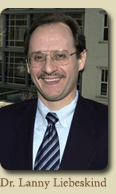 Director of University Science Strategies, a new position reporting directly
to Dr. Michael Johns (Executive VP, Health Affairs, WHSC). Dr. Liebeskind’s
position was created, in part, to help implement science and technology
initiatives that are key to Emory’s strategic plan. The plan has three
cross-cutting initiatives in science and technology for which Emory can
provide global leadership: neuroscience, human nature, and society; predictive
health and society; and computational and life sciences.
Director of University Science Strategies, a new position reporting directly
to Dr. Michael Johns (Executive VP, Health Affairs, WHSC). Dr. Liebeskind’s
position was created, in part, to help implement science and technology
initiatives that are key to Emory’s strategic plan. The plan has three
cross-cutting initiatives in science and technology for which Emory can
provide global leadership: neuroscience, human nature, and society; predictive
health and society; and computational and life sciences.Dr. Liebeskind continues to serve as Samuel Candler Dobbs Professor of Chemistry.
TOP
A day to remember
March 16 was the day that cemented the futures of our 2006 graduates, who gathered on the WHSCAB Plaza for Match Day to learn where they will train as residents. Of our 110 M4 students, 105 participated in the National Residency Matching Program (NRMP). Four students participated in the Military Match, with three receiving active assignments and one deferring the Military Match and becoming part of the NRMP. Four M4 students are deferring their residencies.
As was the case last year, 44 students chose primary care specialties. Twenty-seven will go into internal medicine, 11 into pediatrics, three into family practice, and three into gynecology/obstetrics. Other leading specialties chosen include general surgery (10), psychiatry (9), emergency medicine (8), and diagnostic radiology (7). Thirty-five students will remain in Georgia and will train at Emory for their first and/or second year. The remaining students will enter residencies in 26 other states.
TOP
Postdoc destination
The March 2006 issue of The Scientist again rated the SOM as one of the top places for postdocs to work. The magazine annually ranks more than 150 U.S. institutions in its “Best Places to Work
for Postdocs” issue. Emory and Vanderbilt were the only two
academic institutions listed in the top 15.
TOP
Transitions
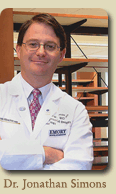 Dr.
Jonathan Simons will resign his position as Director, Winship Cancer
Institute, on September 1 and will continue as Professor in the Department
of Hematology/Oncology and in the Wallace Coulter Department of Biomedical
Engineering at Emory and Georgia Tech. He served as Winship Director for
more than five years.
Dr.
Jonathan Simons will resign his position as Director, Winship Cancer
Institute, on September 1 and will continue as Professor in the Department
of Hematology/Oncology and in the Wallace Coulter Department of Biomedical
Engineering at Emory and Georgia Tech. He served as Winship Director for
more than five years.Among his many accomplishments, Dr. Simons helped Winship move to the next level in achieving National Cancer Institute Com-prehensive Cancer Center status and doubled NCI funding from 2000 to 2004.
TOP
Celebrating women physicians
Two women from our faculty are featured in “Changing the Face of Medicine: Celebrating America’s Women Physicians,” a multimedia traveling exhibit sponsored by Emory’s Robert W. Woodruff Health
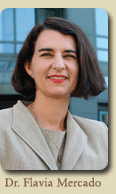 Sciences Center Library, the Morehouse School of Medicine Library, and the
CDC’s Information Center.
Sciences Center Library, the Morehouse School of Medicine Library, and the
CDC’s Information Center.The exhibit highlights the lives and accomplishments of American women in medicine, past and present. Drs. Flavia Mercado (Pediatrics) and Nanette Wenger (Internal Medicine/Cardiology) are featured as are Drs. Eliza Ann Grier (the first African American woman to practice in Georgia) and Julie Gerberding (current CDC Director).
Condensed from a larger exhibition designed by the National Library of Medicine and co-sponsored by the American Library Association, “Changing the Face of Medicine” opens at the CDC’s Tom Harkin Global Communications Center exhibit area on May 8 and continues through June 16. A
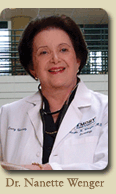 reception honoring the Atlanta physicians in the exhibit begins at 5:30
pm on May 10 in the exhibit area. A panel discussion of women physicians,
including Drs. Mercado and Wenger, follows at 6:30 pm.
reception honoring the Atlanta physicians in the exhibit begins at 5:30
pm on May 10 in the exhibit area. A panel discussion of women physicians,
including Drs. Mercado and Wenger, follows at 6:30 pm. If you plan to attend, contact the CDC at icinfo@cdc.gov or 404-639-1717 to facilitate entry through its security gate. (You will need a driver’s license or passport.) If you’d like to read the women’s biographies, click here.
Thomas J. Lawley, MD
Dean, Emory School of Medicine
TOP
Current Issue • Past Issues • SOM Home
Contact Us • Give a Gift
Copyright © Emory University, 2006. All Rights Reserved